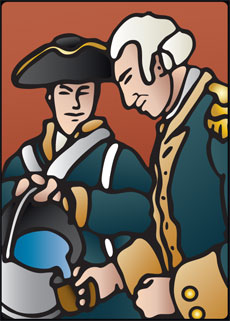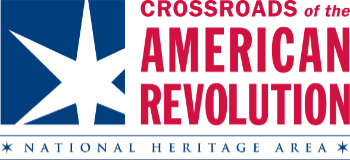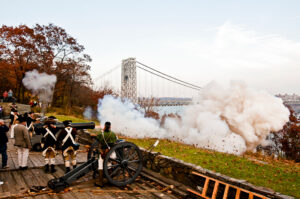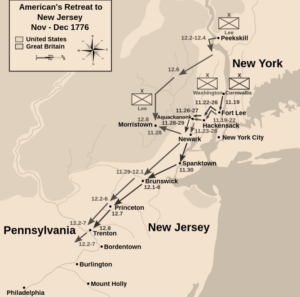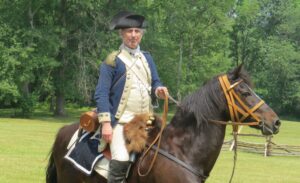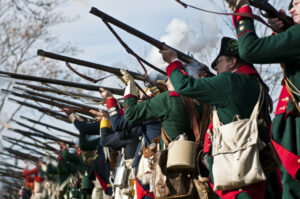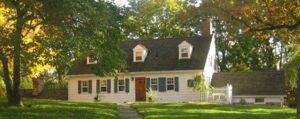Meet Your Revolutionary Neighbors
Luke Miller
1759-1851
I was born September 18, 1759 at Bottle Hill (now Madison) in Morris County into the family of Josiah Miller in a house built by my grandfather some time before 1750 and known as Miller’s Station. I lived in this house my entire 91 years. My father, and then I, was a blacksmith and we had a blacksmith shop on our land that served many local people and travelers. Our town got its name Bottle Hill from an early tavern that had a bottle hung outside as an advertisement of its hospitality and I well remember in my youth seeing that bottle hanging there.
When the Revolution broke out, I was 17 years old and in June 1776 volunteered in a militia company. We marched to Elizabethtown Point where for two weeks we performed guard duty and worked on making earthen breast works to defend against British incursions from Staten Island, directly opposite, which they took possession of in July. I went out on militia duty to the same place several more times during the fall to carry out the same duties. Our company was part of the Morris County regiment commanded by Colonel Jacob Ford of Morristown. When Washington made his retreat through New Jersey, closely followed by the British, I was out on duty. We followed our army as far as New Brunswick and then filed off and were discharged in December at Morristown. After the Battle of Princeton on January 3, 1777 Washington’s army made their winter quarters near Morristown in Loantaka Valley and not far from our home. During the winter and spring, the British and our militia had several skirmishes at Ash Swamp, Vaux-Hall, and Short Hills and I participated in each of them. At Vaux-Hall we attacked a party of Hessians returning from a raid and killed nine of them and took 50 prisoners under guard to Morristown.
Although the New Jersey militia rarely left the State, in September 1777 I was in a company that spent one month at New Windsor in the New York. In the winter of 1778 I served several one month tours at Elizabethtown and other places in Essex County and along the shore opposite Staten Island. The frequent militia call ups put a strain on many men who needed to be home to maintain their farms or their businesses. Militia duty was supposed to be just part-time and when your local area was threatened, but in New Jersey more demands were made. The militia laws made it possible for men to avoid going out on active duty and one way to provide a substitute. While substitutes could be hired, often family members substituted for each other. In June 1778 I substituted for my brother and we marched to Monmouth and took part in the battle there. The following September I again substituted for my brother in a company that marched to Minisink on the Delaware River in an expedition against the Indians who had burned a settlement there. The Indians left before we got there. Substituting for my brother did not excuse me from my own tours when called out.
Over the next three years the enemy incursions from New York were so numerous that the demand for militia service required individuals to serve tours in alternate months. We were also often called out on alarms that might last for only a few days. I always volunteered. When enough men did not agree to go out when called, the officers had to draft men to make up the full number needed and that is when men might seek a substitute. I was involved in two important battles took place in June 1780 as a result of British incursions to Connecticut Farms and Springfield.
During the war, Washington and his army spent a lot of time near our home, especially in winter encampments, and we provided a welcome to both common soldiers and officers on many occasions. George Washington, himself, made several visits to our house. I recall that he wrote several letters during one visit while sitting in the front northeast room of our house and had conversations about the war with some of his officers in another room. For many years we had a chair that was referred to as the Washington chair. One story handed down was about Washington getting a drink from our well by lowering the oak bucket and then bringing it up and drinking directly from the bucket without spilling a drop.
I was married three times and had ten children. I was an active citizen, continuing in the militia after the war, rising to the rank of major. In 1808 I was one of the original stockholders in the Madison Academy to improve the education of our children and in 1825 I was on the committee that arranged for the building of a new Presbyterian Church.
